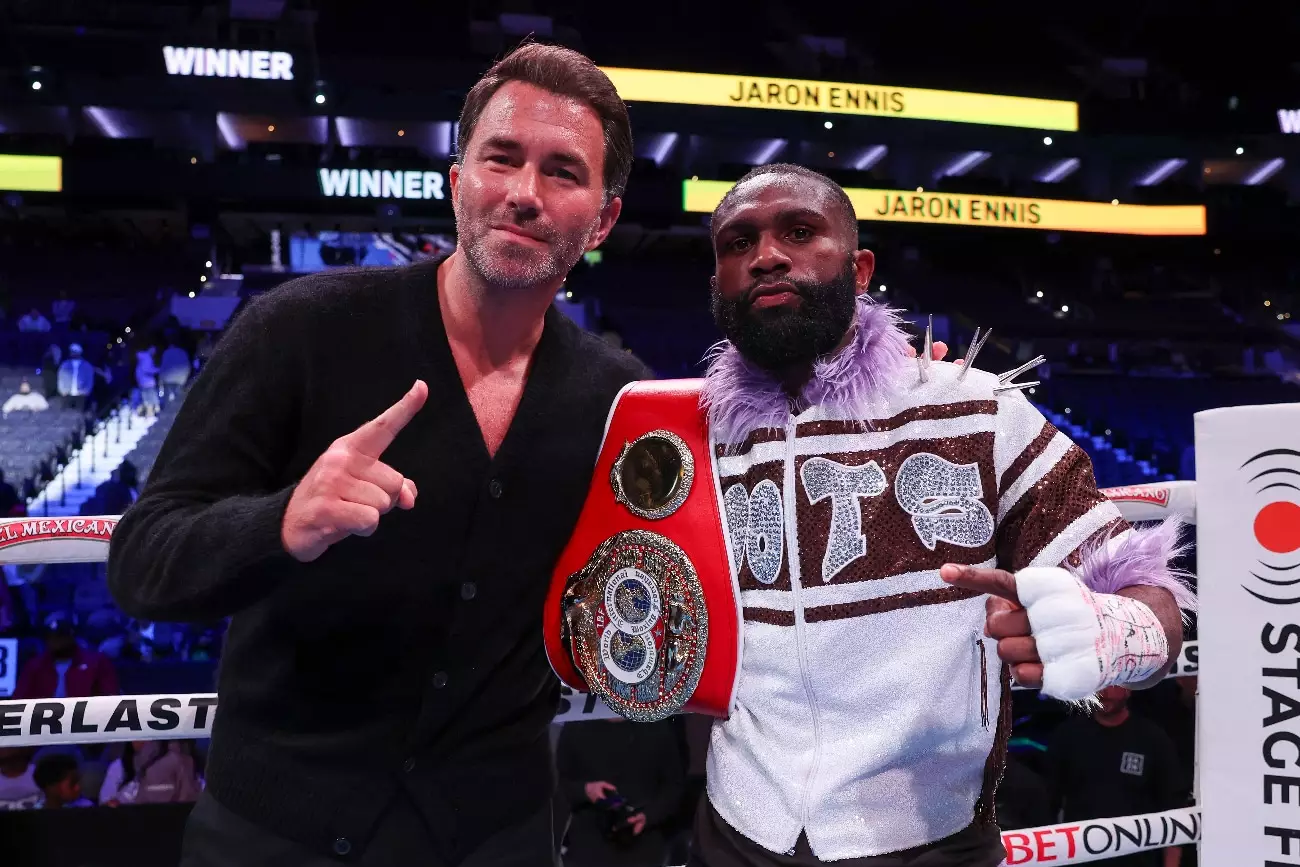Jaron ‘Boots’ Ennis, an undefeated welterweight with a record of 33 wins, 29 of which are knockouts, possesses a strong desire to claim his place among boxing’s elite through unification bouts. His promoter, Eddie Hearn, has been entrusted with the task of facilitating these significant matchups in a division that currently stirs a whirlwind of complexities. Ennis’s steadfastness in pursuing fights against other champions is commendable; however, it places Hearn in a predicament, navigating an environment where titleholders are reluctant to engage with him. The stakes are high, and the challenges are multifaceted.
The core issue revolves around the champions in the 147-pound division who are notably evasive about fighting Ennis. The reluctance stems not only from Ennis’s prowess in the ring but also from his overshadowed popularity. Fans may be drawn to his undefeated record, but the reality is stark; Ennis lacks the mainstream appeal that would typically draw champions into the ring against him. The concern for potential losses, coupled with the absence of appropriate financial incentives, leaves champions with little motivation to accept a bout with him. In a sport where risk and reward dictate decisions, this is a significant hurdle that Ennis must overcome in his pursuit of unification.
Eddie Hearn’s acknowledgment that money plays a crucial role in securing these fights cannot be underscored enough. While he has stated that Ennis is not primarily concerned with financial gain, the reality of professional boxing still necessitates negotiated contracts that make financial sense for all parties involved. For champions such as Mario Barrios and Eimantas Stanionis, the promise of substantial monetary compensation is essential to luring them into the ring with Ennis. Hearn might need to involve high-profile financiers, in this case, His Excellency Turki Alalshikh, to bridge the financial gap that could facilitate these matchups.
The disappointment from boxing fans regarding the potential absence of the Ennis vs. Teofimo Lopez matchup underscores a broader context in the sport—expectations vs. reality. Fans may have been eagerly anticipating a fight featuring Ennis against Lopez, harboring hopes that it could reinvigorate interest in the welterweight division and offer a clash of styles that’s both competitive and entertaining. However, the reality that Ennis is fixated on unification rather than pursuing high-profile but potentially less rewarding fights has further complicated the narratives fans want to engage with. It is a delicate balance of ambition and marketability that Ennis now finds himself navigating.
The decision to shun a bout with Teofimo Lopez could have other repercussions for Ennis’s career trajectory. The anger and frustration from fans, particularly those who were ready to overlook his previous decisions, might lead to a significant backlash against him, impacting his brand within the sport. If fans perceive him as being uncooperative or disconnected from the desires of the boxing community, it could hinder his growth, even sparks competitive interest in forthcoming matches. Therefore, it is vital for Ennis and his team to effectively communicate their strategy to fans, ensuring they understand that the pursuit of unification fights is a calculated move focused on reaching the pinnacle of his career.
A Greater Vision for the Future
Ultimately, Jaron Ennis’ ambition to unify the welterweight division symbolizes a greater vision for competitive boxing. While the hurdles may be formidable—financial constraints, champion reluctance, and fan discontent—the pursuit for notable matchups speaks to his integrity as a fighter dedicated to ascending the ranks. With the backing of Eddie Hearn and a clear focus on unification, the future remains positive, provided that both Ennis and his promoter can find viable solutions to navigate the existing obstacles. It is this unwavering drive that may eventually lead Ennis to the recognition and acclaim that he seeks within the boxing community.

